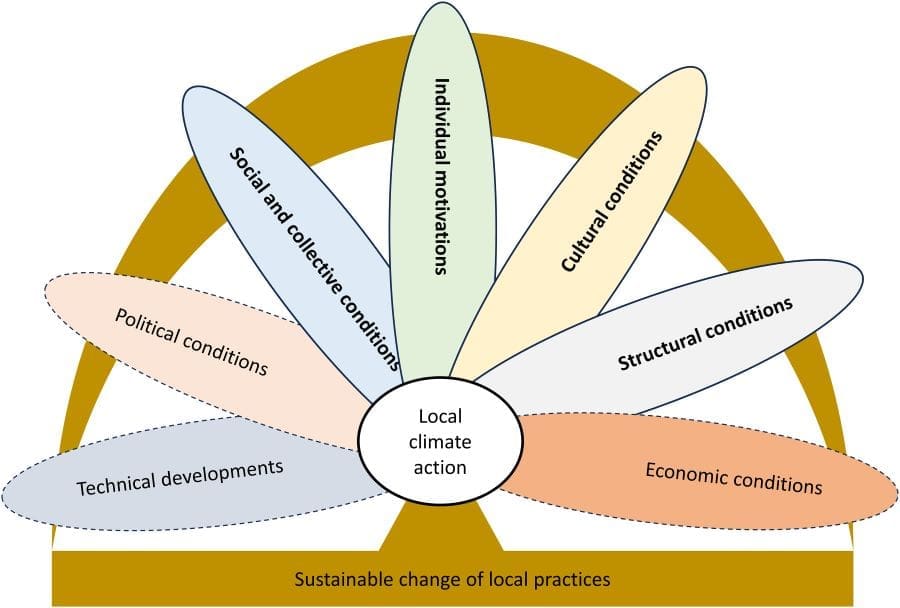A survey across nine European neighborhoods has shed light on how individual and collective motivations drive climate action in hyperlocal settings.
The findings, published in the open-access journal PLOS Climate, reveal that personal motivation to act against climate change outweighs the influence of collective neighborhood intentions. However, both approaches show potential for fostering greater pro-environmental behavior.
The research, led by Christian A. Klöckner from the Norwegian University of Science and Technology, examined the nuanced factors influencing climate-conscious behavior within neighborhoods, a setting often overlooked in broader climate studies. Participants across three Austrian neighborhoods, two each in Italy, Norway, and Finland, were surveyed between the summers of 2022 and 2023.
The study evaluated individual and collective pro-climate actions in four categories: diet (e.g., plant-based eating), travel (e.g., shared transport), protest activities (e.g., signing petitions), and general sustainable behaviors (e.g., buying secondhand goods).

The findings indicate that individual motivation and social connections within neighborhoods both play significant roles in fostering climate action. Notably, the study found that perceived individual efficacy – confidence in one’s ability to make a difference – strongly encouraged personal climate action. Meanwhile, collective intentions were closely linked to the neighborhood’s social capital, or the strength of relationships and trust among neighbors.
“Climate mitigation is a collective task; therefore, we analyzed the role of neighborhoods in motivating climate action,” Klöckner and colleagues noted. “We found that in neighborhoods with high social capital, climate action is easier to engage in.”
Cultural and socio-structural factors also shaped climate behavior. Men reported weaker pro-climate attitudes and intentions than women, though their actions were not significantly less. Larger households tended to display more climate-friendly behaviors, while households with young children under 14 years reported fewer actions.
Additionally, people with university degrees were more likely to engage in pro-environmental practices and exhibited stronger individual intentions. Full-time workers, however, demonstrated less intent to participate in collective climate efforts.
The researchers emphasized that neighborhood-level interventions, such as designing spaces to strengthen local social networks, could enhance collective climate action. At the same time, personal empowerment through education and targeted programs could bolster individual contributions.
Despite the insights, the authors caution that the study’s results may not be broadly generalizable due to the localized nature of the research. The neighborhoods included both rural and urban areas, with notable cultural variations – particularly in the rural Finnish communities, which displayed unique characteristics in several variables.
This study underscores the importance of combining individual, cultural, and socio-structural factors in understanding climate action. By leveraging the social dynamics of neighborhoods, policymakers could design more effective strategies to mobilize local communities in the fight against climate change.
Journal Reference:
Klöckner CA, Brenner-Fliesser M, Carrus G, De Gregorio E, Erica L, Luketina R, et al. ‘Climate actions on the neighbourhood level – Individual, collective, cultural, and socio-structural factors’, PLOS Climate 3 (11): e0000424 (2024). DOI: 10.1371/journal.pclm.0000424
Article Source:
Press Release/Material by PLOS
Featured image credit: Albrecht Fietz | Pixabay




